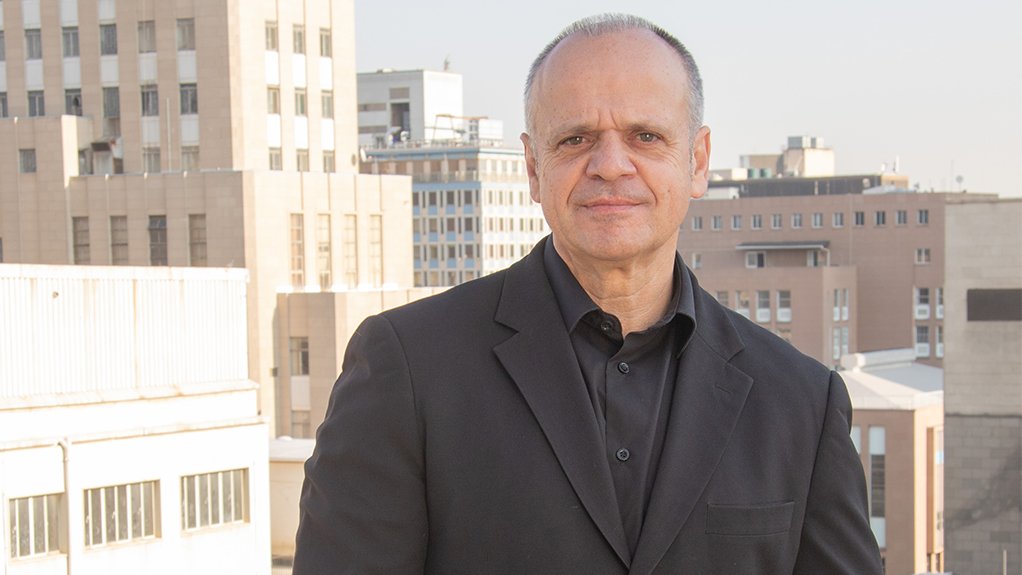Metals and engineering industry must find common purpose in negotiations - Seifsa
While more incendiary rhetoric related to the main agreement negotiations in the metals and engineering industry can be expected in the run-up to the negotiations later this year, common purpose must be found between stakeholders to craft solutions to entrenched differences, Steel and Engineering Industries Federation of Southern Africa (Seifsa) CEO and chief negotiator Lucio Trentini says.
"The economy has been hit by a double-digit contraction, battered by an unprecedented and alarming jobless rate, and is languishing in sub-optimal economic growth.
"What should the key stakeholders, namely organised business and labour, be doing to lift South Africa and the sector out of this mess?" he asks.
Once negotiations over wages and conditions of employment have been settled, the focus must urgently shift to more important priority interventions, namely where labour and business collectively can play a part in tackling the deep underlying failures preventing meaningful growth in South Africa and the sector, Trentini says.
Trust among all stakeholders must be rebuilt and the national discourse must find a way to transcend beyond purely wages and terms and conditions of employment.
"In the collective bargaining space, business and labour are on opposite sides as adversaries. Are the stakeholders capable of reaching common cause to turn things around or, as we have come to expect, will employers and labour simply not be able to find one another where it matters most, namely at the negotiating table?" he asks.
Common interest plays a role in shaping the deal, he states.
In the metals and engineering industries, the collective bargaining model has proven to be resilient. While it has come under severe scrutiny and strain over the past couple of years, it has survived, and some would even suggest has thrived, he notes.
"Resilience grows from taking constructive steps and building a common purpose. Despite diverse ideologies of business and labour and among business groupings, finding a way forward in tolerance and mutual respect is needed," Trentini says.
This year's round of negotiations will not be easy, owing to the many challenges facing the country. South Africa’s economic outlook does not look good and there is little business confidence.
"The notion of job retention and/or job creation on the back of an alarming high unemployment rate fuelled by ongoing retrenchments and business closures has become elusive," Trentini emphasises.
Spiking unemployment, widespread business failures and huge job losses point to negotiations this year taking place against a difficult economic landscape.
"Only if labour and business find a way of working together do we stand a chance of turning things around. The relationship between supporters and detractors of gazetted agreements also remains strained," he adds.
SEIFSA MANDATE
The associations federated to Seifsa will be proposing a settlement at the Metal and Engineering Industries Bargaining Council (MEIBC) that envisages affording the industry an opportunity to re-set in an enabling environment underpinned by certainty, stability and industrial peace.
The Seifsa Council has mandated that this year’s negotiations be structured around four broad principles, namely a long-term agreement, wages, gazettals and extensions, and exemptions incorporating a special phase-in dispensation.
Owing to links between these four themes, consensus must be reached on each before an agreement can be considered, Trentini points out.
Further, industry negotiations over the years have created a set of comprehensive and favourable employment conditions for employees that are essentially unmatched across most bargaining councils, he states.
Therefore, Seifsa does not foresee any further amendments to benefits contained in the main agreement nor does it propose varying existing terms and conditions of employment, including safeguarding Section 37 of the main agreement that protects members from having to engage in plant-level bargaining, he says.
It is also envisaged that all outstanding issues be dealt with in line with the provision as set out in an already signed-off process agreement, and that this process start immediately once a settlement agreement has been concluded, Trentini adds.
NEASA's POSITION
The 2024 MEIBC negotiations are being conducted under very trying circumstances. Employers in the sector are currently in survival-mode and businesses are closing frequently, industry association the National Employers' Association of South Africa (Neasa) says.
A recent survey among Neasa members in the sector indicated that about 70% of employers in the metals and engineering sector have reduced employment by an average of 30% over the past three years.
"The sector has been in decline for decades. Employers are simply unable to compete or manufacture profitably under circumstances where business and investor confidence is at an all-time low, steel prices have skyrocketed, electricity is not readily available and there is a lack of proper infrastructure, among others," it says.
Further, the economy is simply not growing and providing opportunities to expand or even survive.
"Employers are at the end of their tether and operating under conditions of employment that are already unaffordable for most of them," Neasa says.
The association understands that employees are also subjected to adverse economic pressure, and it is going to be a very difficult task to balance the interests of employers and employees without jeopardising the sustainability of many more employers, it states.
Article Enquiry
Email Article
Save Article
Feedback
To advertise email advertising@creamermedia.co.za or click here
Announcements
What's On
Subscribe to improve your user experience...
Option 1 (equivalent of R125 a month):
Receive a weekly copy of Creamer Media's Engineering News & Mining Weekly magazine
(print copy for those in South Africa and e-magazine for those outside of South Africa)
Receive daily email newsletters
Access to full search results
Access archive of magazine back copies
Access to Projects in Progress
Access to ONE Research Report of your choice in PDF format
Option 2 (equivalent of R375 a month):
All benefits from Option 1
PLUS
Access to Creamer Media's Research Channel Africa for ALL Research Reports, in PDF format, on various industrial and mining sectors
including Electricity; Water; Energy Transition; Hydrogen; Roads, Rail and Ports; Coal; Gold; Platinum; Battery Metals; etc.
Already a subscriber?
Forgotten your password?
Receive weekly copy of Creamer Media's Engineering News & Mining Weekly magazine (print copy for those in South Africa and e-magazine for those outside of South Africa)
➕
Recieve daily email newsletters
➕
Access to full search results
➕
Access archive of magazine back copies
➕
Access to Projects in Progress
➕
Access to ONE Research Report of your choice in PDF format
RESEARCH CHANNEL AFRICA
R4500 (equivalent of R375 a month)
SUBSCRIBEAll benefits from Option 1
➕
Access to Creamer Media's Research Channel Africa for ALL Research Reports on various industrial and mining sectors, in PDF format, including on:
Electricity
➕
Water
➕
Energy Transition
➕
Hydrogen
➕
Roads, Rail and Ports
➕
Coal
➕
Gold
➕
Platinum
➕
Battery Metals
➕
etc.
Receive all benefits from Option 1 or Option 2 delivered to numerous people at your company
➕
Multiple User names and Passwords for simultaneous log-ins
➕
Intranet integration access to all in your organisation





















